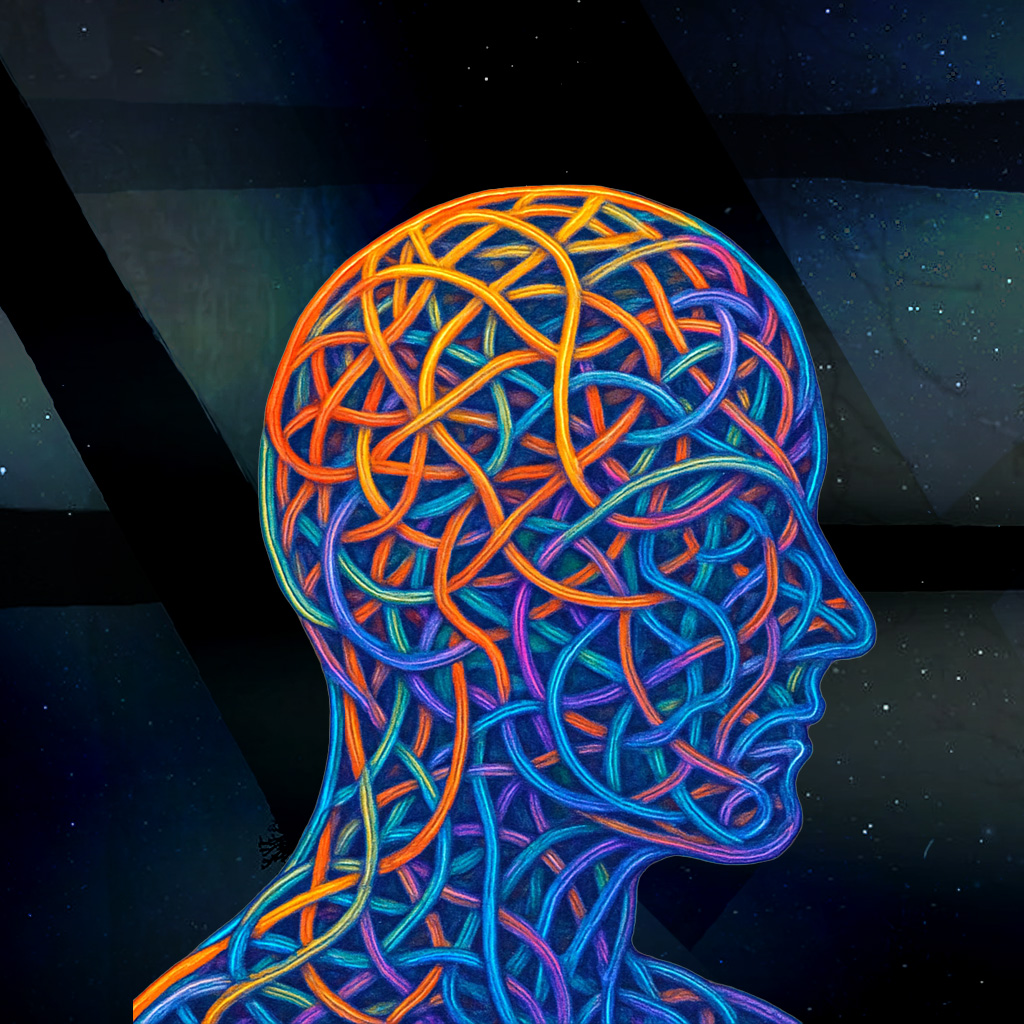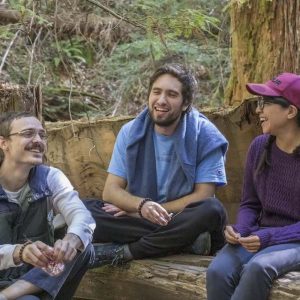
The dharma of relating to other people is about awareness and how we live in this type of community. We all have this incredible challenge of trying to do some sort of practice while trying to relate this practice to a constantly changing world with relations and so forth. So, maybe we can shed a little light on this.
How we’re doing in community and with each other is a really good way to see how your practice is going. Sitting in quiet meditation is one thing. When you’re actually interacting with other people, all of a sudden your past habits you thought were resolved by sitting there come to the surface and are there for you to see. So, the great thing about community and your social relations is you’re constantly able to see how you’re doing.
Cultivation is what you’re doing 24 hours a day, and if you’re able to meditate for an hour a day, that’s great, but how are you really doing? How you’re really doing is at the worst moments of the week. That’s how you’re really doing.
That’s how cultivated you are. You’re not cultivated at the time that you’re sitting quietly and you’re quiet. Your cultivation is, “Have I gotten a little bit less irritated at people?” “Have I gotten a little less judgmental about my way of seeing other people?” That’s how you know how your cultivation is going. Cultivation is what you’re doing every minute with your family, at work, in the situations you’re in, and that’s how you know how you’re doing. And it’s the same for left-home people in their relationship to each other and their left-home community.
What I think most of us take for other people is our projection of someone else that we created out of our own mind and put on someone else as though that’s who they are. Have you sat down and listened carefully to this other person presenting themselves as they are in their own structure to you? Or are you just projecting what you’d like to hear from them or think that they’re like?
I would suggest that the first thing about social life is you have to have it.
And the first problem that I would point out is that most people don’t have a social life. They have a projection of their narcissistic mind on everything around them. So, they’re walking around in a kind of narcissistic bubble, which is reinforced by our society through incredible ideas about not growing up and being narcissistic your whole life. Watching all this endless sense data coming in and having no space for you to exist in your own mind means you’re not actually relating to anyone else.
The first thing that Buddhism is calling us to do is to wake up and start maturing. Forget about enlightenment. Wait until you get to be a good human, then you can worry about being a good Buddha. And how well are you doing? Well, that’s how well you’re doing right now in your emotions of this last week, in your relations of this last week, in your mind of this last week.
The first thing I would ask all of you to do is spend the next week trying to actually experience someone else. This would require that you listen very carefully.
We say Guan Yin Bodhisattva listens to the sounds of the world. Guan Yin is listening to other people’s structure of reality that they live in. We’re each in our own universe, and if you actually listen to someone else, you’ll find out that they’re very different, and they’re very irritating because they actually have a lot of ideas, feelings, and experiences that are not the same as yours. How do we have dharma relationships? We listen closely to the existence of another and accord with the causes and conditions of that person, not your projection of that person that you’re creating from your own mind. 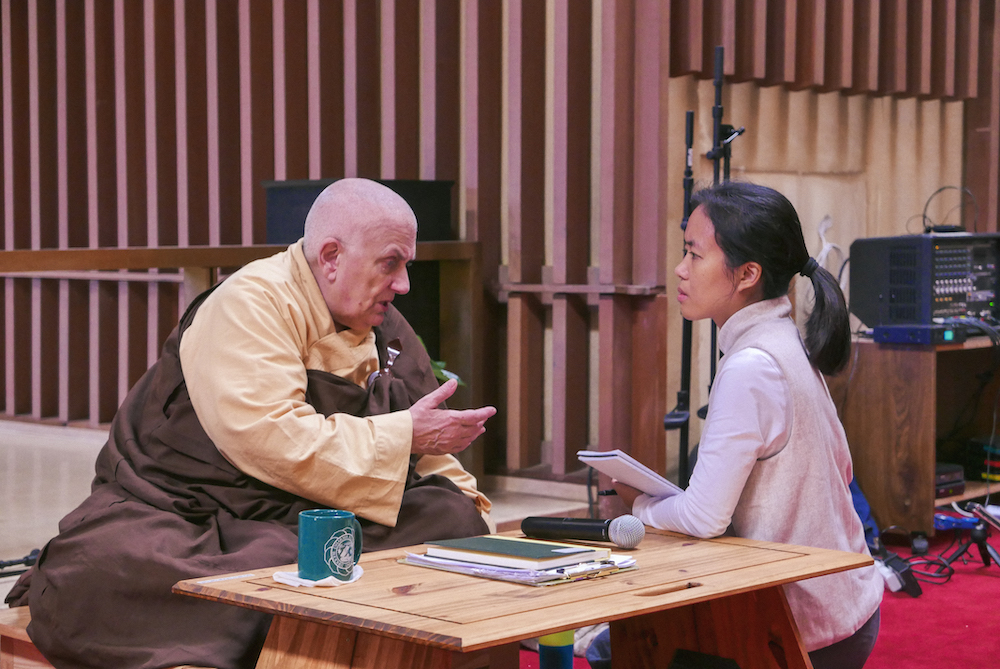
First of all, there’s listening closely to your parents or your background because you are 60-80% the mechanisms of your childhood. It wasn’t what your parents did; it’s how you reacted to that, and you’ve created an entire mechanism that we call your personality. This is primarily a mechanism that’s unconscious, the first level of what the Buddha says is the illusory self because the Buddha’s talking about that mechanism of self that was created from the past.
You have the potential to be free of that habitual emotional reaction, but you would have to see very deeply in the moment when those emotions arise. To catch the moment when those emotions are actually arising and begin to be in a place where those emotions aren’t driving you all day long in a series of a hundred emotions before you even know what happened requires really deep patience and very deep mindfulness. And if you can watch where that’s arising, then you can begin to achieve actual freedom.
The illusion of self came from the society of our family. It came from our early childhood and our reactions when we were in elementary school. People treated us a certain way, and then we came to understand ourselves in this way. Then we see ourselves in a narrative story that we’re telling ourselves that came from all these exchanges and interchanges that we had through our childhood. The Buddha said there was a potential freedom from that illusion. Therefore, we’re going to have to look and see where that illusion is arising on a very fundamental level.
The creation of illusion was mostly social. Why is filial piety so important? Because it keeps us in touch with our parents in a way that we can actually watch the arisal of that. If you push your parents away, you push the field of the interactions that created you away from a place you can deal with it.
The second aspect of being social in a much broader sense is that we’re always interrelated.
There is no individual self. There’s no place in the matrix of the universe that you can divide one element of the universe from another element.
Venerable Master Hsuan Hua taught that you cannot attain enlightenment until everyone gets there. Everyone else is part of this process, and, eventually, you’re going to interrelate with everybody whether you like it or not. You may not see it, but they’re all part of what’s happening to you.
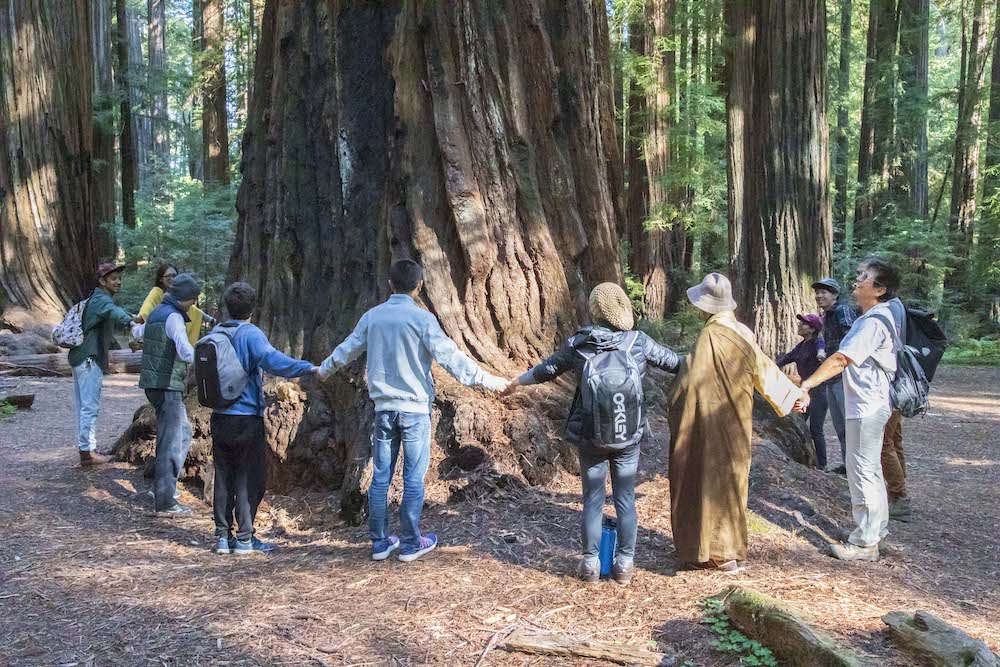 Now with ecology, even our survival on this globe is completely dependent upon each of our actions. In order to deal with the question of justice of the relationship of each other on that level, all of us are going to have to give up quite a bit. We use just enough to stay at the most simple existence so there’s enough for everyone else to share. I think the key is to see you’re trying to work on finding a solid, clear place where you can sit. Then you can observe and be patient with yourself.
Now with ecology, even our survival on this globe is completely dependent upon each of our actions. In order to deal with the question of justice of the relationship of each other on that level, all of us are going to have to give up quite a bit. We use just enough to stay at the most simple existence so there’s enough for everyone else to share. I think the key is to see you’re trying to work on finding a solid, clear place where you can sit. Then you can observe and be patient with yourself.
You already have all kinds of affinities and attachments with your family. It’s reason enough to positively relate, but they also put you in close proximity with each other that creates a huge amount of tension. The key in the family is this: Do you really, really care? Do you really have empathy, care, and concern for the people in your family, or are they just a means to get your desires met? The question that you have to fundamentally ask yourself at each moment is whether family is a way for you to get your identity or not to be alone. In other words, if you look deeply within, you’ll see that there are other aspects involved in your own identity that are involved in the relationships with family members. And herein lies the problem.
If you have a family, you have an incredible guru. The guru is exactly how you’re doing every minute in the dynamic of that relationship.
And how are you doing? You’re doing as well as you’re actually listening in an empathetic and compassionate way to the other actual “not you” that exists in this closely knit group of people that have all these affinities with each other. There are a few choices. You can just live with the tensions, or you can go around arguing with each other, get divorced, and try somebody else. This usually doesn’t work because you’re taking the same dysfunctional person to the next person.
From a dharma position, you have to be very careful to have the relationship die as a guru — die as a dynamic pressure on you to cultivate and turn it into a mechanism of getting by. A guru you listen to very carefully is telling you about yourself. What are many relationships turned into? “I’m not listening at all. I don’t care at all. We’re in a habit. Please do not bother my habit.” What is cultivation? It’s trying to deal with the mess you already have and not create a new mess.
With the dharma of relating to other people, the number one is we get to see ourselves. It’s this ability to listen carefully to the sounds, and we find that all sentient beings are in their own universe. We live in millions of different universes. The universe that I walk in every day isn’t the universe that you walk around in. If we’re truly going to communicate with each other, the first thing you have to do is find out how different the other person’s universe is than yours. And have some empathy and attentiveness to that. And out of that caring and listening to both ourselves and to others deeply is probably one of the most profound elements of cultivation. Remember we can’t do anything with each other until we’ve listened really carefully because until you’ve listened to what’s going on, there’s no way to apply wisdom. This is because what we call wisdom is just our judgment from our own point of view about what they should do.
Just listening to someone else is really profound. I can guarantee to anyone if you ever want to have deep, warm relationships with people, or if you’re lonely, listen to somebody for a while, and you’ll connect on such a profound level that that’s the place that we actually relate. And eventually, what can we do? We can listen together.
Do you see how there’s a way we can all be together in a non-manipulative, non-fearful, positive, dharmic way by deeply listening to each other and listening together? So, this is how ultimately the bodhisattva is listening — to teach us how to listen so that we can all listen together. If you’re waiting for someone else to listen, forget about it. I will never say that it’s easy to get someone else to listen to you. The question is are you listening? If you listen really closely, you’ll be surprised to hear what’s going on and learn things you didn’t understand before.
We tune out completely the people we live with. The most basic reason is that when you’re with somebody all the time, listening carefully is hard work. We tend to get into a bad pattern of not listening a lot, mainly because we’re tired, and there are elements that we’ve been through with this person before.
What I’ve found about listening is that there’s no end to it. When I’m listening to my wife, my first reaction is probably wrong. And if I keep on listening, I will eventually discover what she was really saying. The key thing is to listen long enough through your first ten reactions because the first seven are probably mechanical. You know the first two are from your childhood, the next two are what happened in adolescence, the next two are every relationship you had with everyone that went bad or good, and the next one is some biological thing. If we’re talking about our social relationships and our community, I think there really are different spheres that have different levels of responsibility on our part.
There’s the primary relationship, which is to yourself. We could actually say that cultivation is primarily our process of dealing with our narcissism. There’s actually an internal dialogue with yourself. This voice that’s talking to you all day long? It’s kind of who you think you are, but it’s exactly who you are. It’s this story that already has themes like it’s already saying, “I’m a loser.” Then you read situations and think, “Oh, that proved I was a loser,” or, “I’m more cool than everybody in the world.”
Cultivation is recognizing that this voice is an illusion. Behind the voice is an actual awareness. So, if you cultivate and go back to your awareness without the content of this voice, you begin to relax. We’re trying to meditate so that that awareness can just settle and be quiet and not move.
The next level is your family. And what is family? That’s deeply karmic. The family requires incredibly deep listening. You have profound responsibilities to honesty and trustworthiness. There are many virtues that are particularly important in the family. It starts with honesty. If there’s one moment of dishonesty, you fundamentally change the nature and dynamics of the family and the relationship. It’s grounded in honesty, forthrightness, and all these other elements that are highly developed. If you could be as honest as it takes to actually be a good husband, wife, father, or mother, then that’s high-level cultivation.
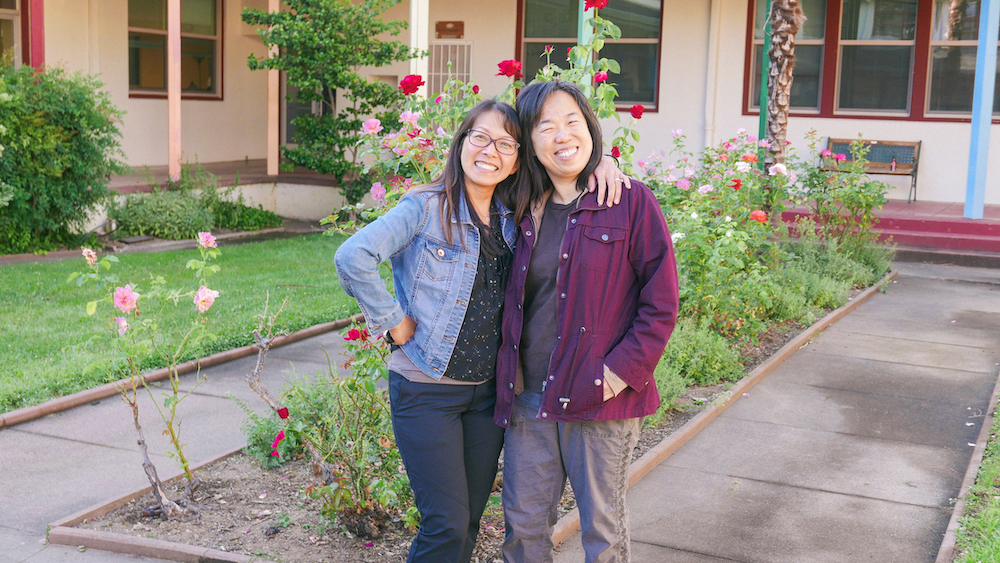
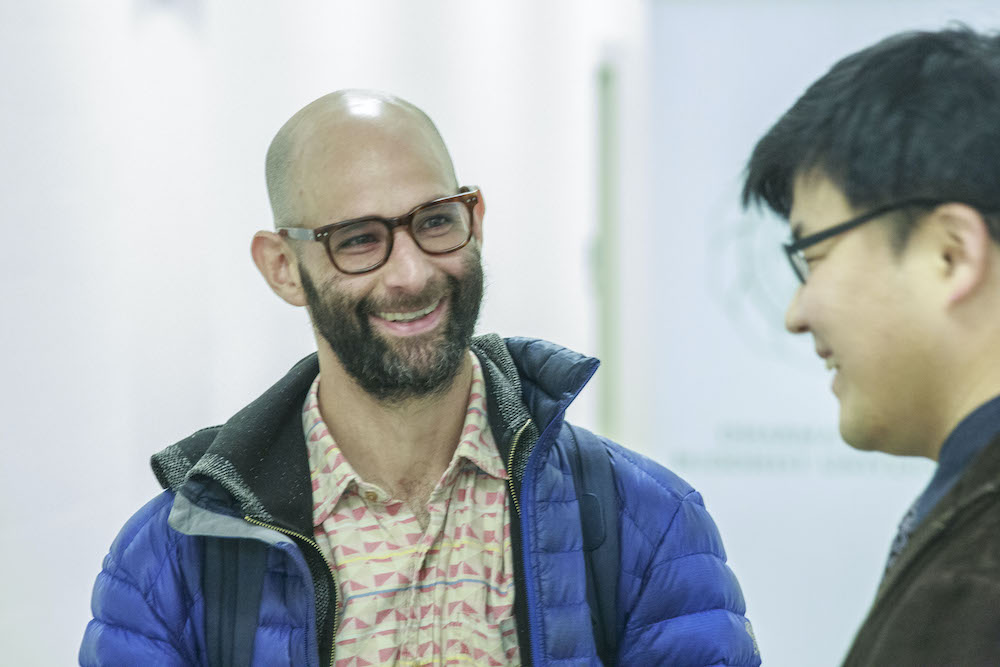 The third layer is friends. Friends are karmic because you chose them or they chose you. There’s some sense of responsibility that you’ve agreed to. Friendship requires mutual caring. It requires effort on your part. When they need a ride to the airport, you actually take them to the airport. To be a good friend is almost to be a bodhisattva.
The third layer is friends. Friends are karmic because you chose them or they chose you. There’s some sense of responsibility that you’ve agreed to. Friendship requires mutual caring. It requires effort on your part. When they need a ride to the airport, you actually take them to the airport. To be a good friend is almost to be a bodhisattva.
Work is the fourth level. Work is an artificial set of relationships. You are at work, have certain responsibilities to productivity, to being responsible, to following through, to being cooperative, and to trying to help your workmates.
And the next level is the larger community or country we live in. We have responsibilities to the area that we live in. We have ways to treat our neighbor that vary from our friends, and yet have certain dharmic responsibilities in relating.
And then we move to the world as a whole, where we get into the issues of ecology, where we get into issues of larger areas of responsibility. Each one of these has a dharmic way of behaving that brings us into accord with that level of structure.
You see, we keep making the mistake that there’s cultivation and then there’s life. The actual practice of trying to stay open to listening is cultivation. It’s not separate because there are all types of habitual ways for why we shut down. It’s a profound activity that requires incredible practice and constant surveillance. You try to perfect it, and you won’t be successful most of the time.
So, as an aspiring bodhisattva, there is no place that we can shut down to listening. Now when I say listening, it’s more their actual spirit. As you listen to what they’re saying, you learn how they think, how they’re constructed, what they’re feeling, what their situation is. And as you see that, you see who they are, and you have empathy or compassion. If you’re waiting to agree with them, forget about this completely. The agreement has already been predetermined. In other words, we usually relate to people in that so far that we agree, we agree. But I’m not talking about that. Because agreeing is not the issue.
Let’s talk about compassion for a second. I mean, compassion is, first of all, listening. And the second aspect about compassion is that you have to have a certain amount of wisdom to understand the action you’re going to take that is actually going to come about with the result you’re hoping for. For example, many people think that they’re going to help somebody. If someone is lonely, you’re going to talk to them and help them. Are you going to follow through with that person all the way to the end of their loneliness? Or are you going to create more loneliness from talking to them today and then not following through tomorrow? What most people think they are doing is compassion, but it’s really just completely messing over everybody.
So when I was talking about compassion, I meant toward our own practice. Now it creates awareness of the situation, but no means of actually resolving issues because there’s no training. Unfortunately, what I have to say is that training is your life. The training ground is our everyday lives. And how much cultivation we’re doing is how we are doing right now.
To cultivate listening skills for our loved ones, the most important dharma is patience. You don’t need anything other than patience to get enlightened. Try to develop patience in everything: in listening, in sitting, in driving. Patience, patience, patience.
In the development of patience, there is a complete link between the social and the individual personal internal awareness. Where they link is patience: patience with ourselves, patience with other people, patience with listening. How do we develop that patience? Breathe.

